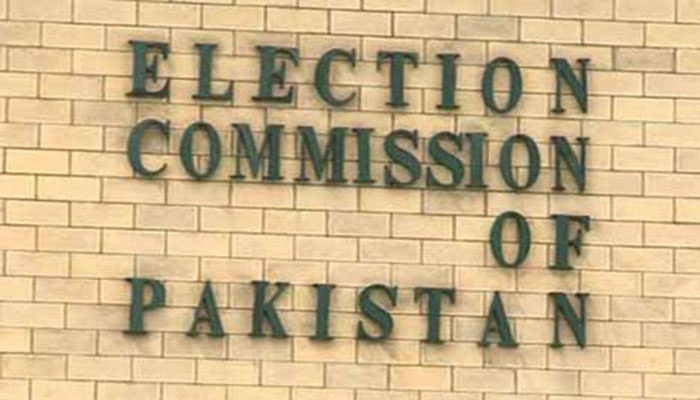International Day of Democracy: PILDAT expresses concern over continuing overreach against ECP
ISLAMABAD: Expressing satisfaction over the recently-concluded peaceful and largely fair election of the Cantonment Boards, the PILDAT has shown extreme concern on the continuing overreach against the Election Commission of Pakistan and the rising tide of autocratic attitudes towards the media in Pakistan on the International Day of Democracy.
The International Day of Democracy is celebrated every year on September 15, which provides a global opportunity to review the state of democracy in the world. In 2021, Pakistan’s rank has dropped a point from the last year score of 38 out of 100 to 37 in Freedom in the World 2021 index by the Freedom House. In Sweden’s V-Dem (Varieties of Democracy) report titled Autocratization Turns Viral: Democracy Report 2021, Pakistan is characterised as an ‘Elected Autocracy’ and falls in bottom 30-40pc countries with a rank of 116.
The Economist Intelligence Unit’s Global Democracy Index continues to place Pakistan in the category of ‘Hybrid Regime’ with a score of 105. According to the PILDAT, the PTI government had already taken unprecedented and dangerous perspective towards the constitutional body of the Election Commission of Pakistan (ECP) when the prime minister and key federal ministers made the ECP a target of criticism.
“This began with the prime minister blaming the ECP to have ‘damaged democracy and morality’ and went on to key federal ministers demanding resignation from all five members of the Election Commission of Pakistan,” maintained PILDAT.
However, the PILDAT stated yet another terrible and utterly condemnable low was reached when Federal Minister Azam Swati lashed out at the ECP, saying the constitutional body should be set on fire.
“PILDAT deplores the continuing irresponsible attitude of some of the government ministers towards the ECP and stands in solidarity with the Election Commission of Pakistan,” it said. Another important index of the state of democracy is media freedom. International voices have consistently criticised the PTI government for its massive crackdown against the media and for failing to protect the media freedom in Pakistan.
Despite continuing domestic and international criticism in this regard, yet another low was reached on September 13 when the press gallery in the National Assembly was locked and journalists were barred from entering it as the President of Pakistan was fulfilling a constitutional requirement of opening another parliamentary year through his address to the joint session.
“It is inexplicable how a politically-elected government can stoop so low to deny freedom of information and maintain a hostile attitude towards the media. Denying the media entry into the Press Gallery to cover the President’s address to the Joint Session is utterly condemnable,” said PILDAT.
The PILDAT maintains that instead of weakening democracy in Pakistan, the government must realise that Pakistan’s future is tied to strengthening and not undermining democracy.
“As Pakistan grapples with a vast variety of challenges of democratic governance, it is important for the State and Society to not lose sight of the democratic genesis of Pakistan and future prosperity solely linked with democracy,” said PILDAT.
-
 Katie Price Drama Escalates As Family Stays In Touch With Ex JJ Slater
Katie Price Drama Escalates As Family Stays In Touch With Ex JJ Slater -
 Critics Target Palace Narrative After Andrew's Controversy Refuses To Die
Critics Target Palace Narrative After Andrew's Controversy Refuses To Die -
 Sarah Ferguson’s Delusions Take A Turn For The Worse: ‘She’s Been Deserted’
Sarah Ferguson’s Delusions Take A Turn For The Worse: ‘She’s Been Deserted’ -
 ICE Agents 'fake Car Trouble' To Arrest Minnesota Man, Family Says
ICE Agents 'fake Car Trouble' To Arrest Minnesota Man, Family Says -
 Camila Mendes Reveals How She Prepared For Her Role In 'Idiotka'
Camila Mendes Reveals How She Prepared For Her Role In 'Idiotka' -
 China Confirms Visa-free Travel For UK, Canada Nationals
China Confirms Visa-free Travel For UK, Canada Nationals -
 Inside Sarah Ferguson, Andrew Windsor's Emotional Collapse After Epstein Fallout
Inside Sarah Ferguson, Andrew Windsor's Emotional Collapse After Epstein Fallout -
 Bad Bunny's Star Power Explodes Tourism Searches For His Hometown
Bad Bunny's Star Power Explodes Tourism Searches For His Hometown -
 Jennifer Aniston Gives Peek Into Love Life With Cryptic Snap Of Jim Curtis
Jennifer Aniston Gives Peek Into Love Life With Cryptic Snap Of Jim Curtis -
 Prince Harry Turns Diana Into Content: ‘It Would Have Appalled Her To Be Repackaged For Profit’
Prince Harry Turns Diana Into Content: ‘It Would Have Appalled Her To Be Repackaged For Profit’ -
 Prince William's Love For His Three Children Revealed During Family Crisis
Prince William's Love For His Three Children Revealed During Family Crisis -
 Murder Suspect Kills Himself After Woman Found Dead In Missouri
Murder Suspect Kills Himself After Woman Found Dead In Missouri -
 Sarah Ferguson's Plea To Jeffrey Epstein Exposed In New Files
Sarah Ferguson's Plea To Jeffrey Epstein Exposed In New Files -
 Prince William Prepares For War Against Prince Harry: Nothing Is Off The Table Not Legal Ways Or His Influence
Prince William Prepares For War Against Prince Harry: Nothing Is Off The Table Not Legal Ways Or His Influence -
 'How To Get Away With Murder' Star Karla Souza Is Still Friends With THIS Costar
'How To Get Away With Murder' Star Karla Souza Is Still Friends With THIS Costar -
 Pal Reveals Prince William’s ‘disorienting’ Turmoil Over Kate’s Cancer: ‘You Saw In His Eyes & The Way He Held Himself’
Pal Reveals Prince William’s ‘disorienting’ Turmoil Over Kate’s Cancer: ‘You Saw In His Eyes & The Way He Held Himself’




